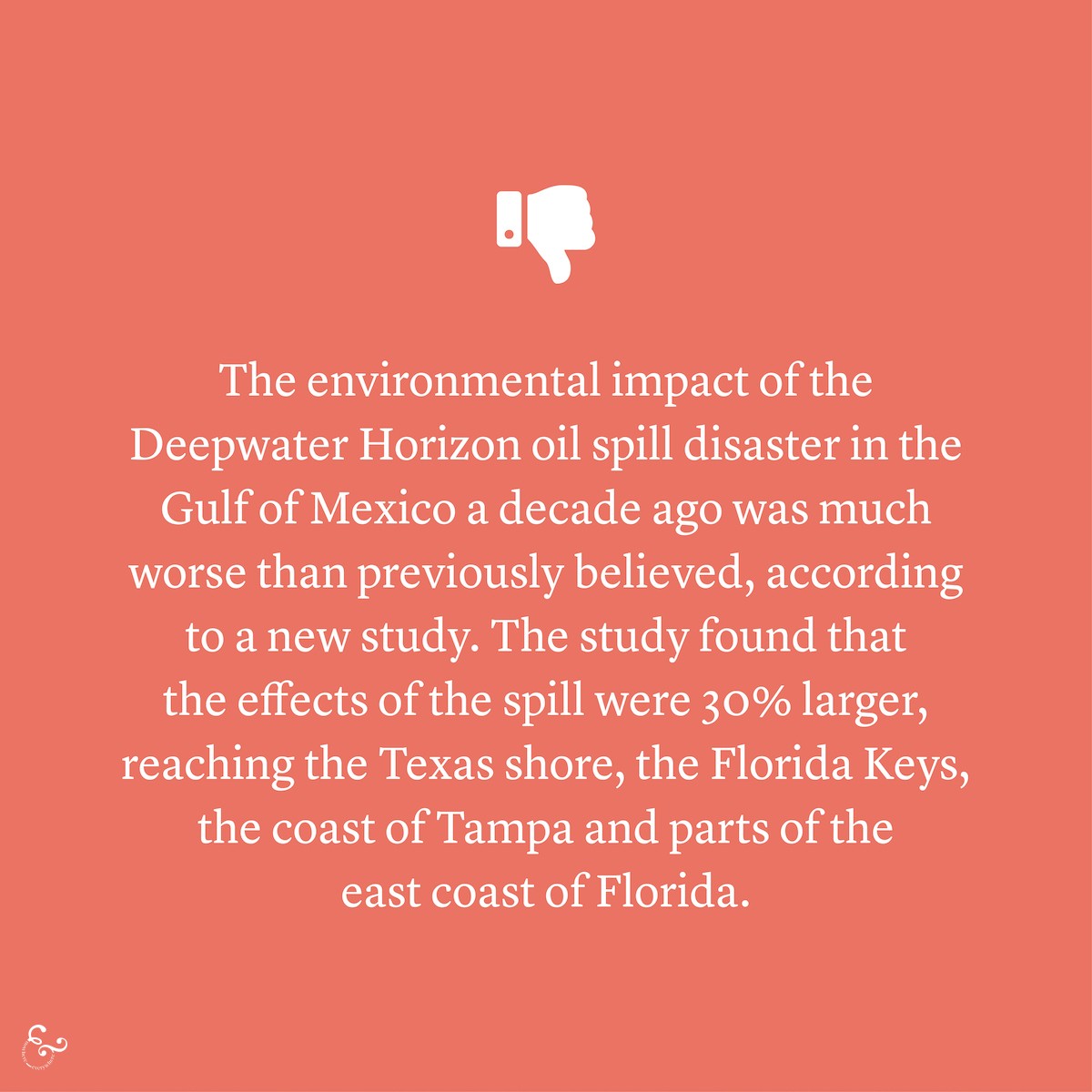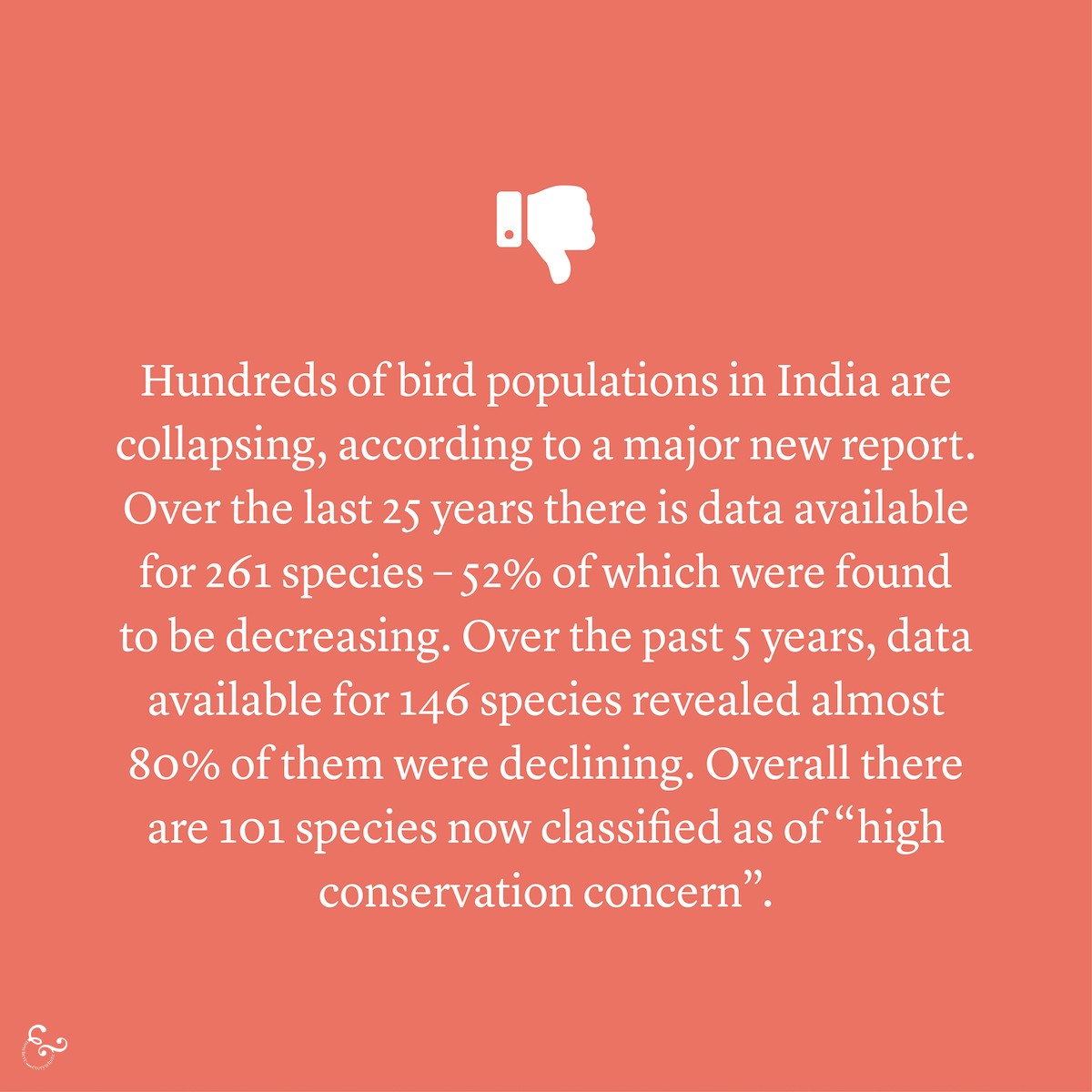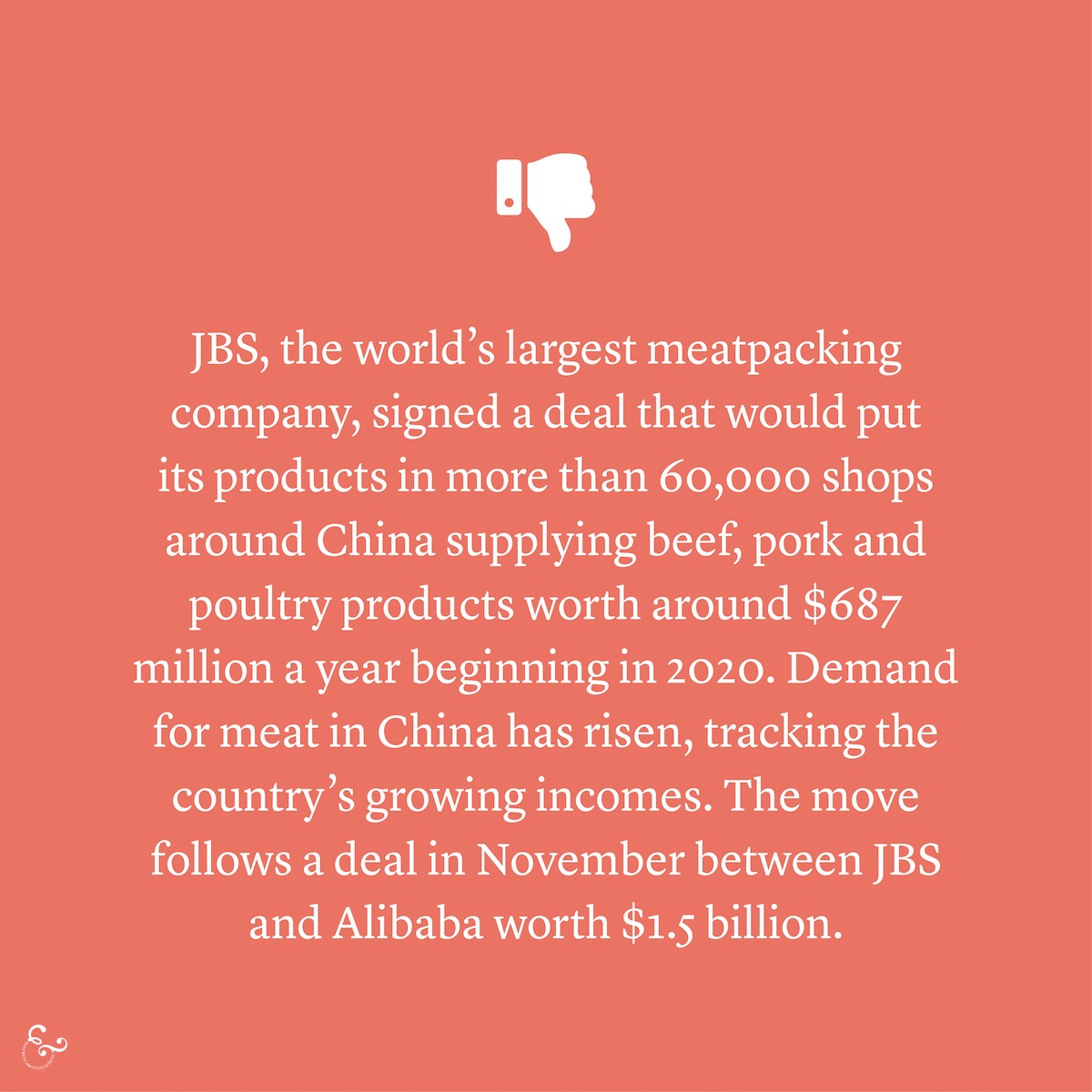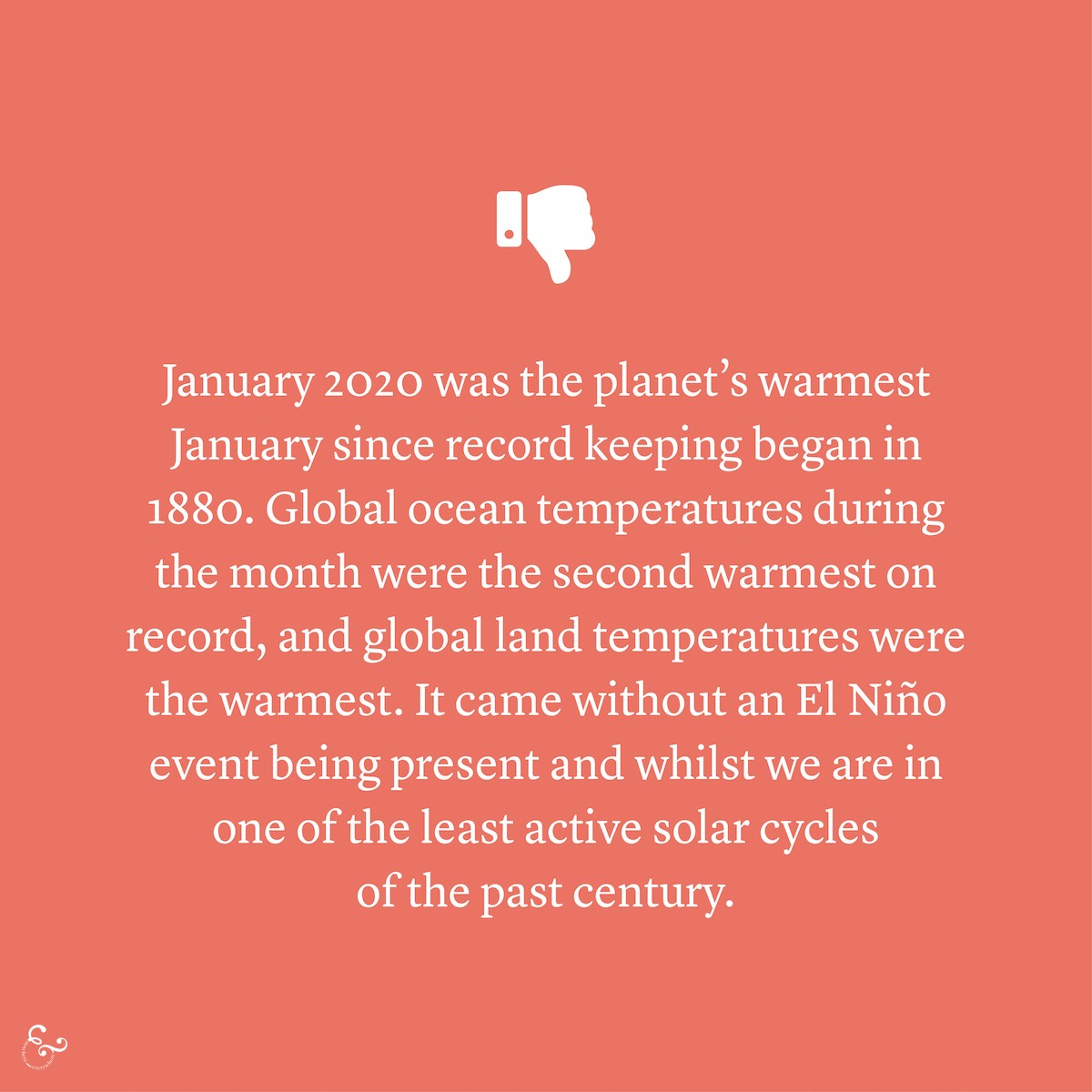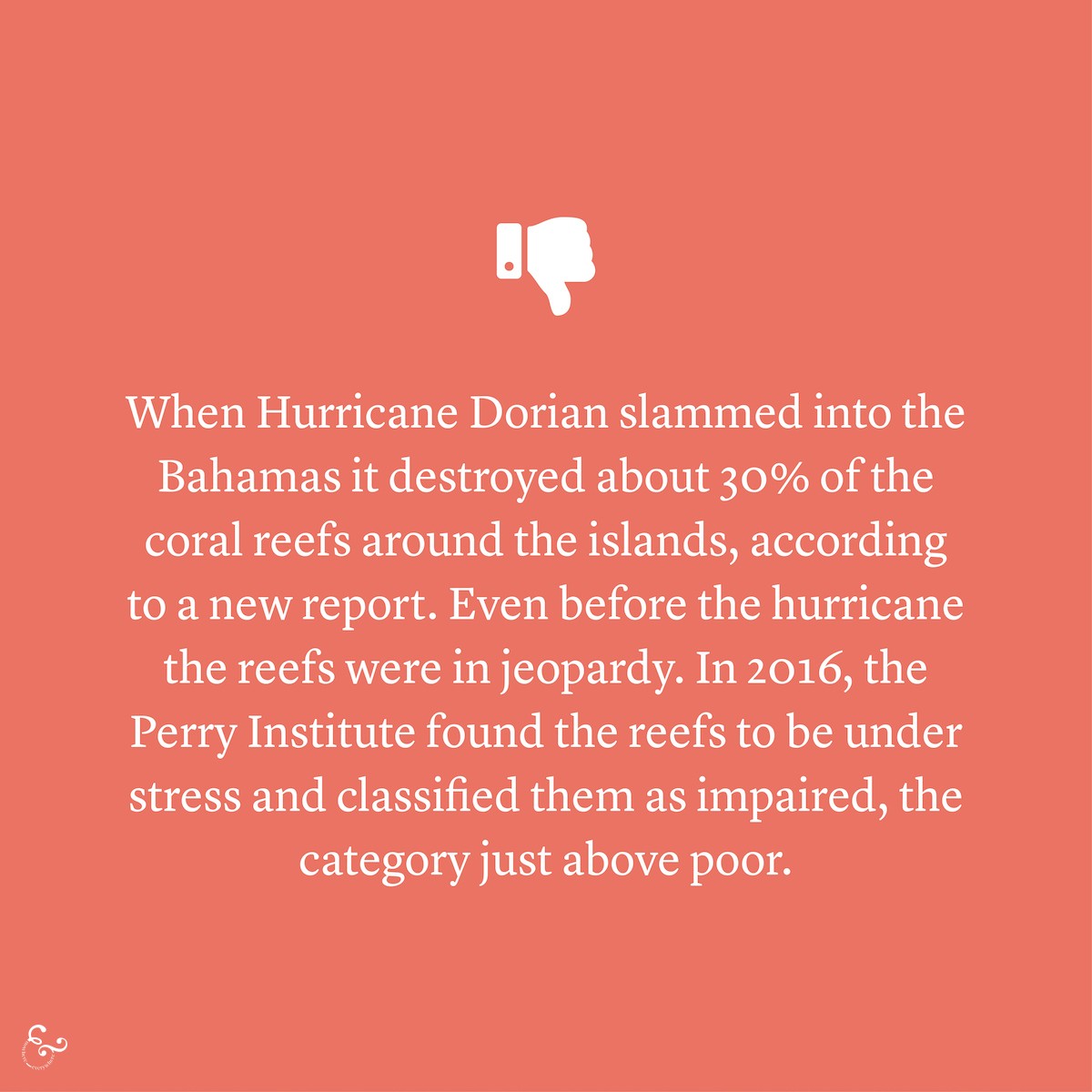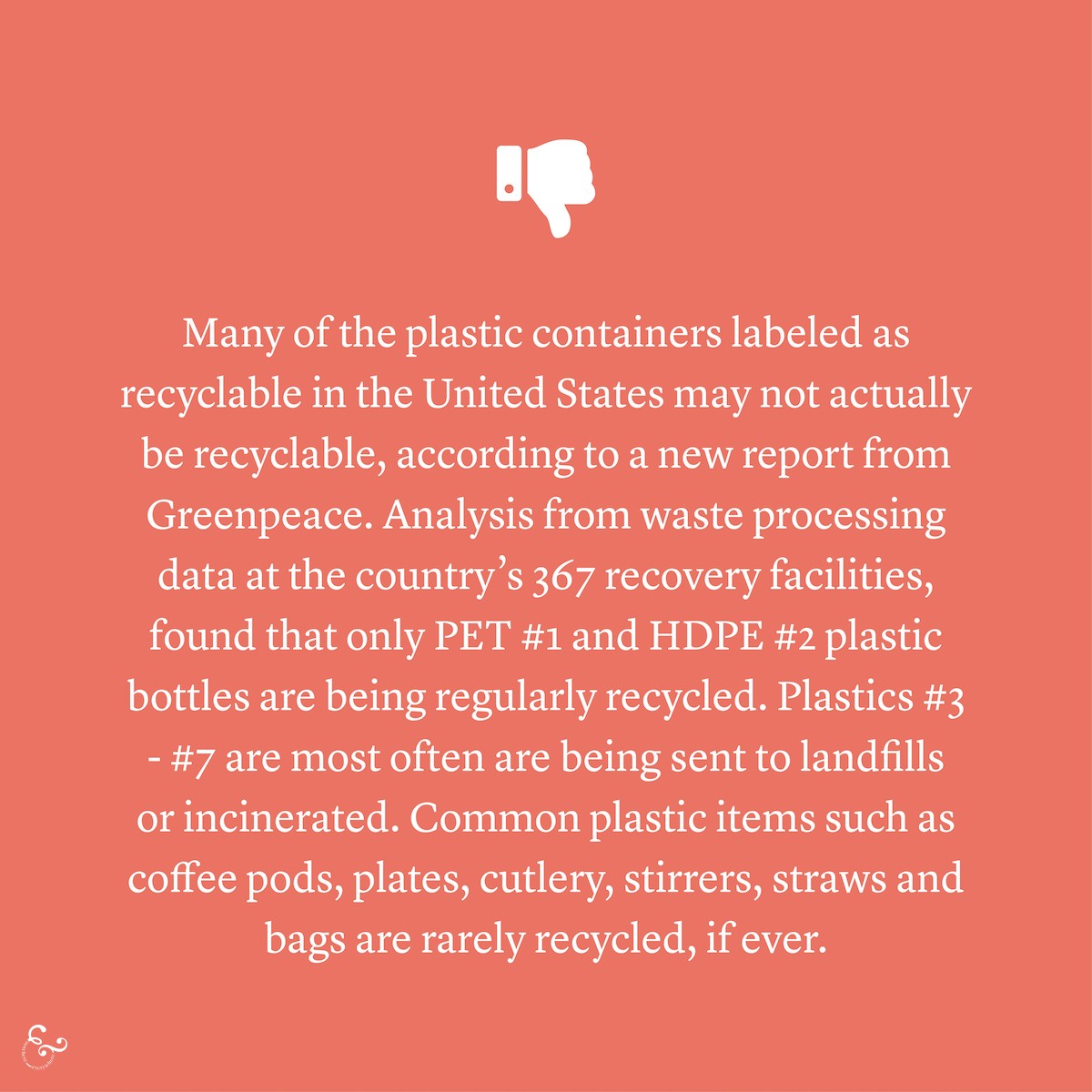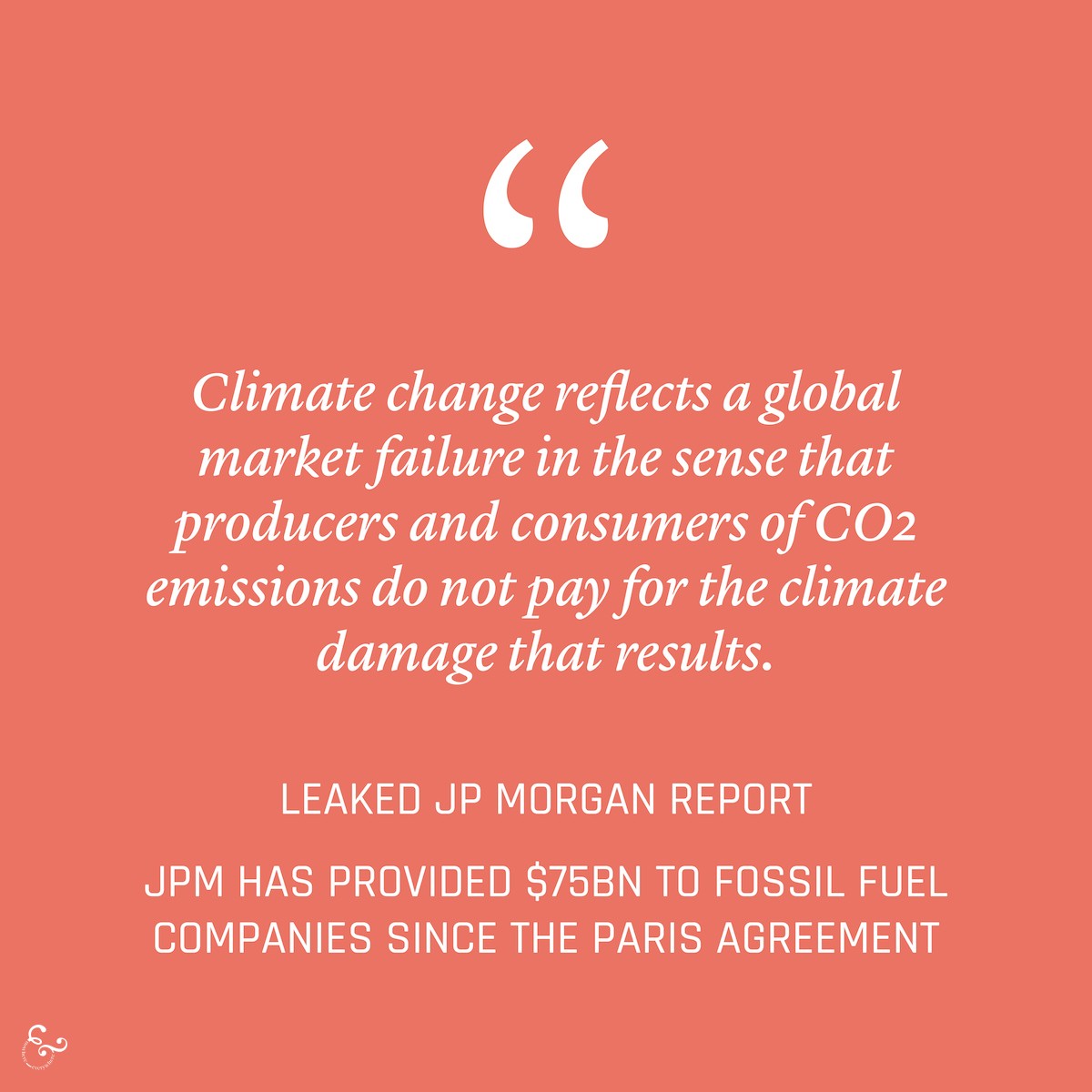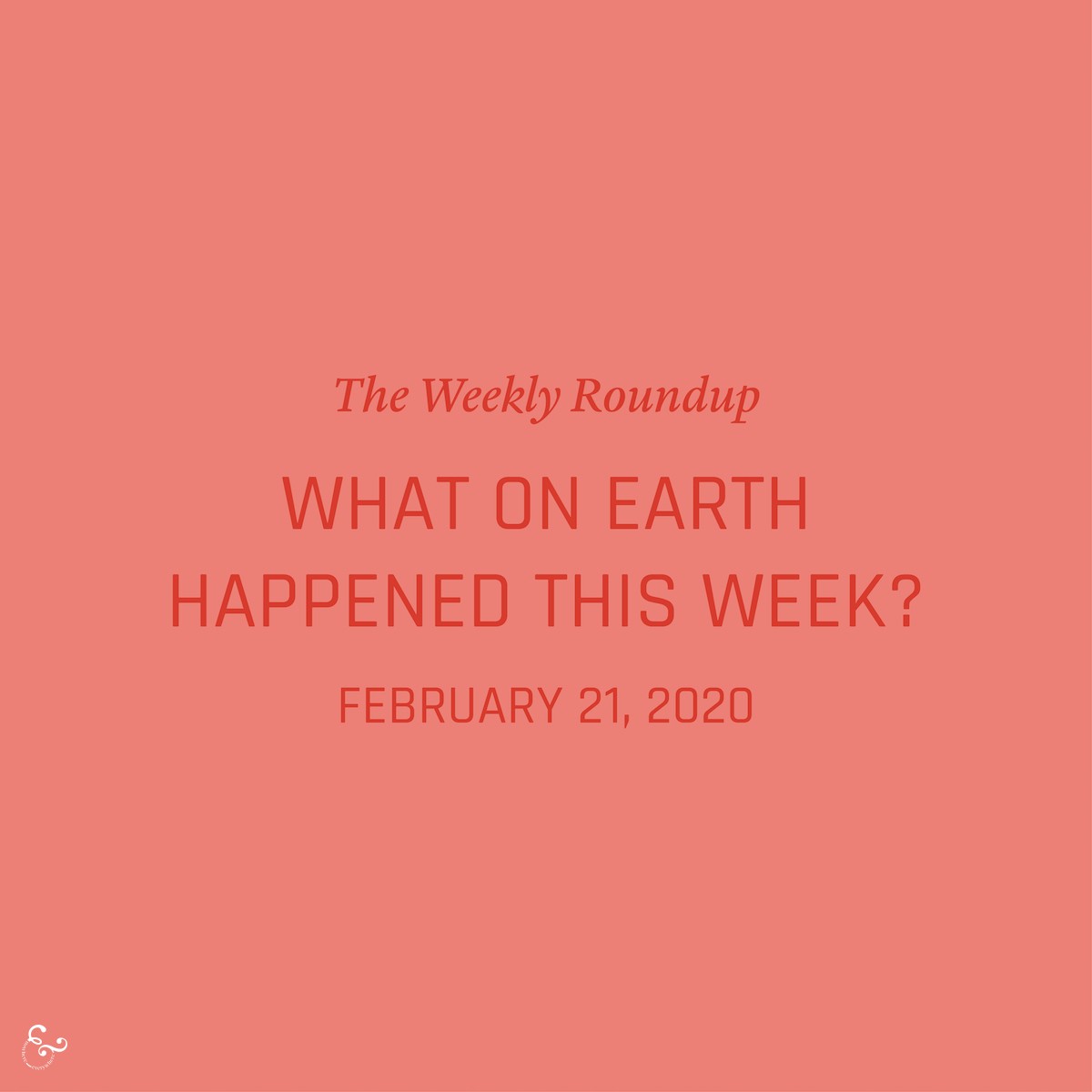Bahamas / Climate Change
1/ When Hurricane Dorian slammed into the Bahamas it destroyed about 30 percent of the coral reefs around the islands, according to a new report. Even before Hurricane Dorian, the reefs were in jeopardy. In 2016, the Perry Institute found reefs to be under stress and classified them as impaired, the category just above poor. (NYT / Perry Institute)
World / Climate Change
2/ The Antarctic has registered a temperature of more than 20C (68F) for the first time on record. Scientists, who collect the data from remote monitoring stations every three days, described the new record as “incredible and abnormal”. It follows another recent temperature record on 6 February when an Argentinian research station at Esperanza measured 18.3C, which was the highest reading on the continental Antarctic peninsula. (The Guardian)
World / Climate Change
3/ January 2020 was the planet’s warmest January since record keeping began in 1880, said NOAA’s National Centers for Environmental Information (NCEI). Global ocean temperatures during January 2020 were the second warmest on record, and global land temperatures were the warmest on record. It came without an El Niño event being present. Furthermore, we are also near the nadir of one of the least active solar cycles in the past century – a time when it is more difficult to set global heat records, due to the reduced amount of solar energy Earth receives. (Scientific American)
World / Climate Change
4/ A new study has analysed what the world’s largest 58 airlines – which fly 70% of the total available seat-kilometres– are doing to live up to their promises to cut their climate impact. For 2018, compared with 2017, the collective impact of all the climate measures being undertaken by the 58 biggest airlines amounted to an improvement of 1%. This falls short of the industry’s goal of achieving a 1.5% increase in efficiency. And the improvements were more than wiped out by the industry’s overall 5.2% annual increase in emissions. Industry figures show global airlines produced 733 million tonnes of CO₂ emissions in 2014. Falling fares and more people around wanting to fly saw airline emissions rise 23% in just five years. (The Conversation)
India / Animals
5/ Hundreds of bird populations in India are collapsing, according to a major new report. Over the last quarter of a century there is data available for 261 species – 52 per cent of which were found to be decreasing in number. And over the past five years, data available for 146 species revealed almost 80 per cent of them were declining. Overall there are 101 species now classified as of “high conservation concern”, according to the State of India’s Birds 2020 report. (Independent / State of India’s Birds 2020)
USA / Plastic
6/ Many of the plastic containers labeled as recyclable in the United States may not actually be recyclable, according to a new report from Greenpeace. The report, which analyzed waste processing data at the country’s 367 material recovery facilities, found that only PET #1 and HDPE #2 plastic bottles and jugs are being recycled with regularity. Plastics #3 through #7, while collected by municipal recycling programs, most often are “being sent to landfills or incinerated.” The new research found that none of the United States’ 367 facilities are capable of processing coffee pods. Just 14 percent of them can process what are known as plastic clamshells, containers commonly used for takeout food, fruit, and baked goods. Just 11 percent of facilities can recycle plastic cups; 4 percent plastic bags; and just 1 percent can process plastic plates, cutlery, straws, and stirrers. (Yale / Greenpeace)
USA & Mexico / Climate Change
7/ The environmental impact of the Deepwater Horizon oil spill disaster in the Gulf of Mexico a decade ago was much worse than previously believed, according to a new study. The study’s authors found that the effects of the spill were 30% larger, reaching the Texas shore, the Florida Keys, the coast of Tampa and parts of the east coast of Florida. (The Guardian / Science Advances)
World / Recycling
8/ We’re in a mattress recycling crisis an mattresses among the most commonly illegally dumped items. The UK threw away more than 7m mattresses in 2017, the vast majority of which went straight to landfill. The US throws away 18.2m mattresses a year, but there are only 56 facilities available to recycle them. Changing consumer behaviour is behind this ever-growing mattress mountain. Time was, you would change your mattress every eight to 10 years. But with online retailers offering more choice than ever, we have learned to expect better mattresses, and to replace them more frequently. There are now at least 175 companies that will ship roll-down mattresses to your front door; one of the first movers in this space, the US firm Casper, was valued at $1.1bn in 2019. (The Guardian)
China / Climate Change
9/ JBS, the world’s largest meatpacking company, recently signed a deal that would put its products in more than 60,000 shops and markets around China for supplying beef, pork and poultry products worth around $687 million a year beginning in 2020. Demand for meat in China has risen, tracking the country’s growing incomes. The move follows a deal in November between JBS and China-based Alibaba worth $1.5 billion. The push for cattle pasture drives most of the deforestation in the Amazon, while soybean plantations to supply pig and chicken feed have replaced large tracts of the wooded savannas of the Cerrado. Brazil exports more beef than any other country. (Mongabay)
World / Climate Change
10/ Almost all countries missed a symbolic 9 February deadline to strengthen plans to fight climate change under the Paris Agreement. Of almost 200 governments, only the Marshall Islands, Suriname and Norway have provided new NDCs to rein in their greenhouse gas emissions and adapt their economies by the date. The three nations only account for only about 0.1% of world greenhouse gas emissions. The UN has confidence NDCs) will be rolling in throughout the year. (CCN)
Other notables…
- Current carbon cycle models may underestimate the amount of carbon dioxide released from the soil during rainy seasons in temperate forests like those found in the northeast United States, according to Penn State researchers. (Phys)
- Governments must provide larger spatial protections in the Greater Caribbean for threatened, highly migratory species such as sharks, is the call from a diverse group of marine scientists. (Phys)
- Under future climate change, the northern reaches of the planet will become more suitable for farming, but researchers warn as agriculture inches into these new lands, it also threatens to release vast amounts of carbon dioxide from the soil. The new discovery, led by the University of Guelph showed that an area of the planet equivalent in size to 30% of currently cultivated land could become suitable to agriculture, under future warming scenarios. This huge swathe of land – which the researchers call ‘frontier soils’ – could, if cultivated, release up to 177 gigatons of carbon dioxide. (Anthropocene Magazine)
- A chemical waste landfill near the Columbia River in Oregon accepted hundreds of tons of radioactive fracking waste from North Dakota in violation of Oregon regulations that has alarmed environmental advocates. The company won’t be fined because state officials believe landfill operators misunderstood state guidelines. (Seattle Times)
- Use of ‘scrubbers’ to cut air pollution increases pollutants pumped into sea, UN report says. These devices reduce the amount of pollution emitted into the air by ships, but the cheapest and most popular models dramatically increase the amount of pollutants pumped directly into the sea. (The Guardian)
More than 1,200 landfill sites at risk of spilling into sea on UK coastline. Powerful storms and rising sea levels mean once-hidden waste could be exposed to pollute oceans and beaches. In a few locations, such as Essex, erosion is already eating away at the sides of landfill sites, exposing decades-worth of human detritus. (Independent)
- Africa is facing a serious lead poisoning problem. This extensive soil lead contamination is a significant source of human exposure across the region. We found that these hazardous sites are often adjacent to residential areas, agricultural and grazing lands. Urgent action is vital to save the jaguar, with 40% of its habitat having been lost over the last 100 years. (The Conversation)
- Queensland graziers have illegally cleared the equivalent of seven football fields of protected greater glider habitat, the federal Environment Department has found. the Australian Conservation Foundation (ACF) alerted them to evidence of clearing, including satellite images.
- As many as 10,000 koalas — a third of New South Wales’ total population — are estimated to have perished this summer in Australia from bushfires and drought, an inquiry has heard. (ABC)
- The world’s largest financier of fossil fuels has warned clients that the climate crisis threatens the survival of humanity and that the planet is on an unsustainable trajectory, according to a leaked document. The study implicitly condemns the US bank’s own investment strategy and highlights growing concerns among major Wall Street institutions. JP Morgan has provided $75bn (£61bn) in financial services to the companies most aggressively expanding in sectors such as fracking and Arctic oil and gas exploration since the Paris agreement. The investment bank says climate change “reflects a global market failure in the sense that producers and consumers of CO2 emissions do not pay for the climate damage that results.” (The Guardian)
- Parts of Yorkshire, UK have been flooding a lot. The damage wreaked by Storm Dennis last weekend and Storm Ciara the week before is projected to run into the billions to repair. (The Telegraph / The Guardian / BBC)
